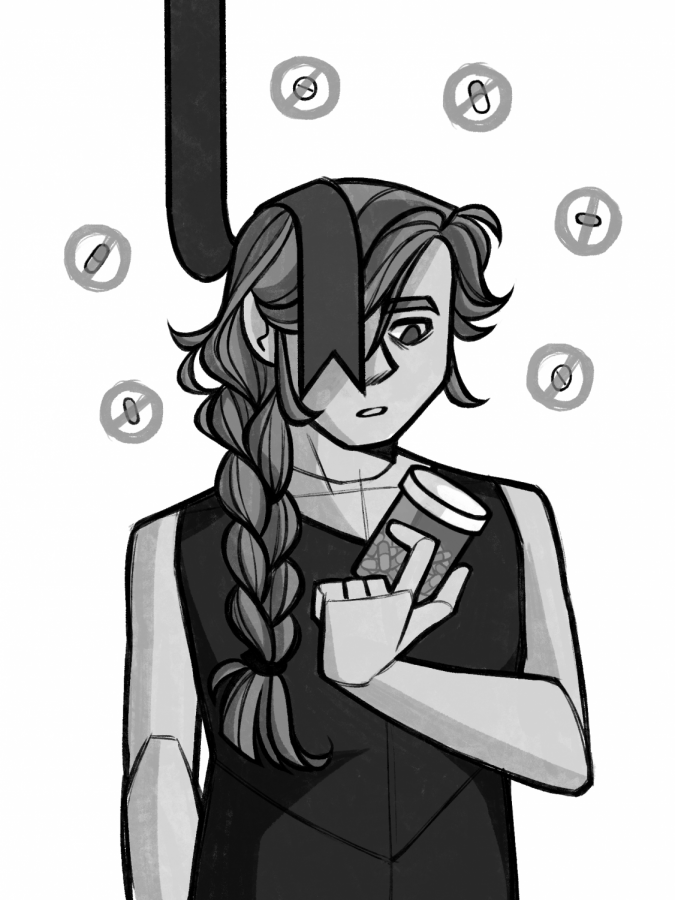OPINION: Red Ribbon Week is a failure of the War on Drugs and needs to leave
The origins of Red Ribbon Week are highly problematic and promote violence.
Red Ribbon Week was originally meant to educate teens and the younger generation on drug prevention. Years have passed since the start of this campaign, but it has done nothing but aggrandize the issue of drug abuse. Further, the Red Ribbon campaign does nothing but marginalize those who have been affected by drugs and exhaust trite information. This is all a part of a bigger problem of drug usage: the failed war on drugs that persecuted marginalized communities and led to irreversible damage for countless U.S residents.
Red Ribbon Week’s origins are highly problematic. According to The Student Life, a university-student-run news source, the starting point of Red Ribbon Week reflects a history of “ineffective and oppressive drug policies that continue to hurt Black, brown and disabled communities today.” This all started with the War on Drugs.
In the 1980s, parents were faced with a growing problem, the rise of drug use in teenagers. Seeking change, First Lady Nancy Reagan was deputized and placed in charge of an organization called the National Family Partnership, which put pressure on President Ronald Reagan for active, militarized force against drug use. This came with the Drug Enforcement Agency, who ran raids against the Central and South American cartels. In one of these raids, Officer Enrique Camarena Salazar was captured by a cartel and executed, and in his honor, the NFP organization coordinated the very first Red Ribbon Week in 1988.
The actions by the NFP helped villainize drug use, and the majority of drug users were in marginalized communities, only vulnerable because of the decades of previous “red-lining” by the United States Government, a process that willingly created communities of working class individuals who were susceptible to poor conditions. And yet the attitude that allowed the NFP to stigmatize the health of drug-users is still in America’s schools, and it will never go away as long as the DEA and the NFP are closely intertwined.
According to TSL, the “NFP must cut ties with the DEA, which co-sponsors some of its activities.” An organization supported by the militant force against drug use should not have a place in American schools. As long as this is happening, the War on Drugs will still continue to do what it always has been about, waging war on U.S. minorities.
The DEA, other law-enforcement agencies and the deputized of America have been using the War on Drugs as an excuse to incarcerate the working class for decades and have done so by arresting non-violent drug users and sentencing them to prison for their lowly offenses. The ACLU notes that the “drug war has provided a new, ever increasing supply of prisoners over the past 15 years.” Graham Bowd, an ACLU worker, found that the U.S. holds 25 percent of the world’s prisoners, most of which are Black men ages 20-29, who were arrested over drug use. And the polarization of these individuals started from a young age with claims spouted by the NFP that were then exacerbated by the presence of them in schools with Red Ribbon Week, and other programs like them.
Some would come to argue that Red Ribbon Week and drug-use programs have evolved past this dark period in time, but this isn’t the case. NPR has proved that the decriminalization of marijuana usage in states such as California and Oregon has alleviated the violence of the War on Drugs. The NFP knows this, and “continues to say no to Marijuana legalization,” which the Red Ribbon Week campaign even notes on their own website. All in all, the NFP and it’s drug prevention programs are a plague on schools, especially on marginalized communities. To fix this, the NFP must seek vast reform on their practices and must stop the alienation of drug users.


